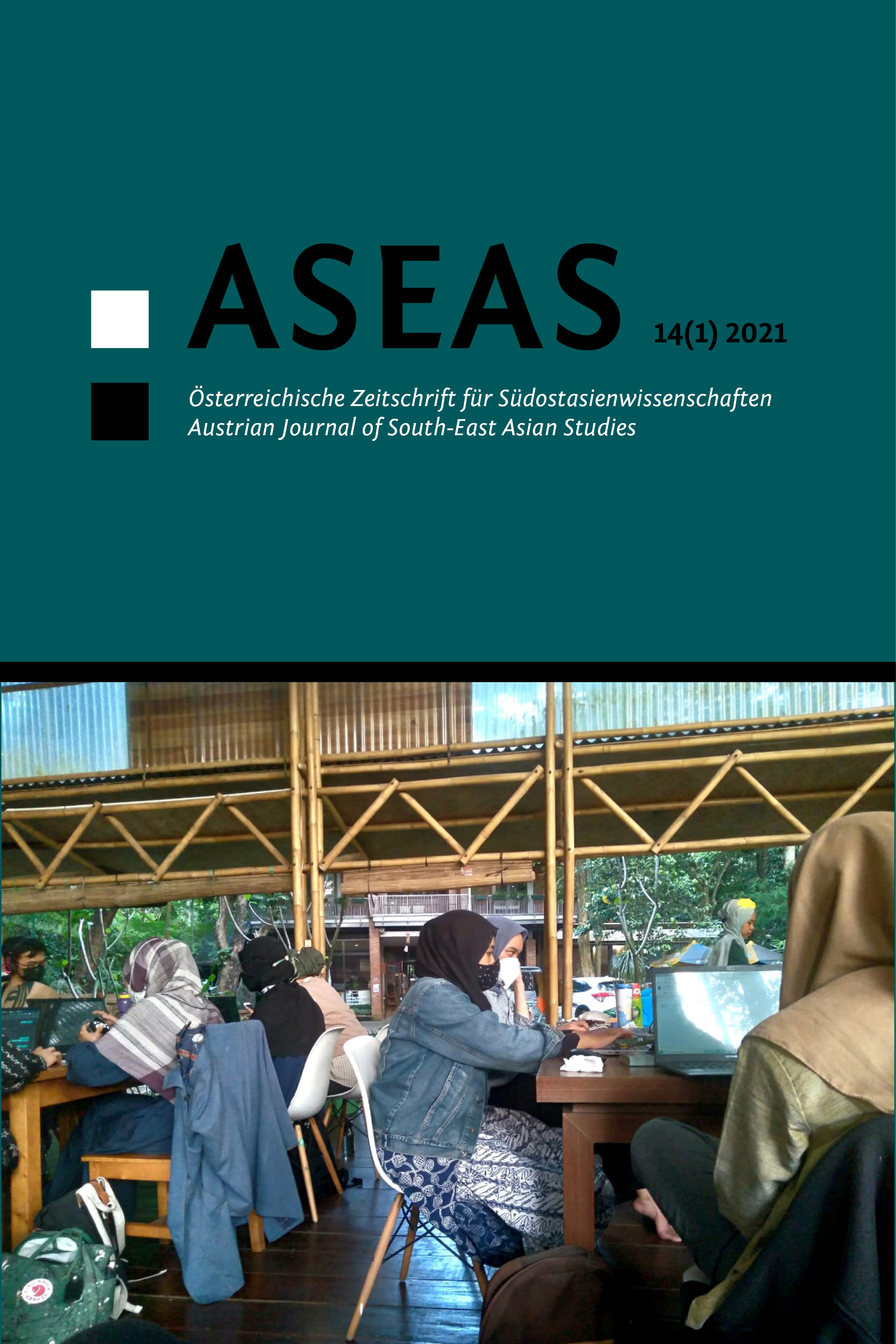Book Review: Bijl, P., & Chin, G. V. S. (Eds.). (2020). Appropriating Kartini: Colonial, National and Transnational Memories of an Indonesian Icon.
ISEAS. ISBN 978-981-4843-92-8. 198 pages.
DOI:
https://doi.org/10.14764/10.ASEAS-0046Keywords:
Kartini, appropriations, transnational memories, feminism, (De)colonialityAbstract
This book dicusses the national, regional, and transnational appropriations of Kartini – a young Javanese woman who lived in Jepara, Central Java, between 1879 and 1904. She is recognised internationally as an iconic feminist and nationalist Indonesian figure and is, after Anne Frank, the most widely-read and influential, (originally) Dutch-language author worldwide in the 20th and 21st centuries. Since 1911, her letters, first published in Dutch as “Door duisternis tot licht” (lit. “Through Darkness Into Light”), have been translated into numerous languages including French, Russian, Japanese, Javanese, Sundanese, and Arabic. There are also several versions of Indonesian and English translations. In the 1960s, a republication of the first 1920 English language translation of a selection of her writings was included in the UNESCO Collection of Representative Works.
References
Abendanon, J. H. (Ed.). (1911). Door duisternis tot licht: Gedachten over en voor het Javaansche volk van Raden Adjeng Kartini. [Through darkness to light: Consideration about and in the interest of the Javaneese]. G. C. T. Van Dorp & Co.
Coté, J. (2014). Kartini: The Complete Writings 1898–1904. Monash University Press.
Mohamad, G. (2004). Foreword: Kartini Sebuah Persona. In Kartini, R. A., Aku Mau...: Feminisme dan Nasionalisme: Surat-Surat Kartini kepada Stella Zeehandelaar 1899-1903 (pp.vii-xix, I. V. Yulianto, Trans.). Buku Kompas KPG & IRB Press. (Original work by J. Coté, On feminism and nationalism, Kartini’s letters to Stella Zeehandelaar 1899-1903, published 1995).
Young, J. O. (2010). Cultural Appropriation and the Arts. John Wiley & Sons.
Downloads
Published
Issue
Section
License
Copyright (c) 2021 Society for South-East Asian Studies (SEAS)

This work is licensed under a Creative Commons Attribution-NonCommercial-NoDerivatives 4.0 International License.
For all articles published in ASEAS before December 2014 and after July 2022, copyright is retained by the authors. For articles published between January 2015 and June 2022, the Society for South-East Asian Studies (SEAS) is the copyright holder. Articles published in ASEAS before December 2019 are licensed under the following Creative Commons License: Attribution-NonCommercial-NoDerivs 3.0 Unported. Articles published after that date are licensed under the following Creative Commons License: Attribution-NonCommercial-NoDerivs 4.0 International. In both cases, this means that everybody is free to share (to copy, to distribute, and to transmit the work) under the following conditions:
-
Attribution — You must give appropriate credit, provide a link to the license, and indicate if changes were made. You may do so in any reasonable manner, but not in any way that suggests the licensor endorses you or your use.
-
NonCommercial — You may not use the material for commercial purposes.
-
NoDerivatives — If you remix, transform, or build upon the material, you may not distribute the modified material.


